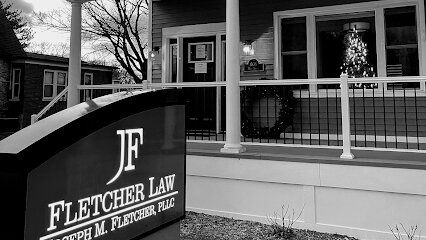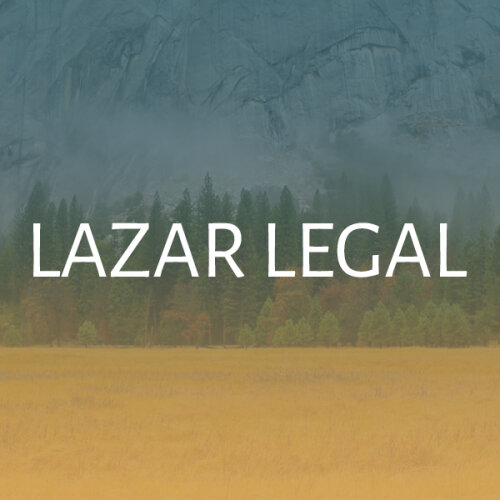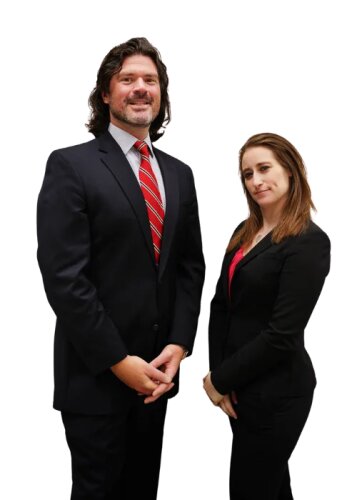Best Lawsuits & Disputes Lawyers in New York
Share your needs with us, get contacted by law firms.
Free. Takes 2 min.
Or refine your search by selecting a city:
List of the best lawyers in New York, United States
About Lawsuits & Disputes Law in New York, United States
Lawsuits and disputes law in New York encompasses the rules, procedures, and rights related to resolving conflicts between individuals, businesses, or organizations in the state's civil court system. This area of law covers a wide range of issues, such as breaches of contract, property disagreements, employment conflicts, personal injury cases, consumer complaints, and more. The goal of this legal arena is to provide a fair process for addressing grievances, seeking damages or specific performance, and ensuring that both plaintiffs and defendants have the opportunity to present their cases.
Why You May Need a Lawyer
Legal disputes can be complex and emotionally charged. People often seek legal help for lawsuits and disputes in situations such as:
- Disagreements over contracts, including business agreements or lease terms
- Landlord-tenant disputes
- Personal injury claims resulting from car accidents or slip and fall incidents
- Business partnership or shareholder disputes
- Employment-related issues, such as wrongful termination or discrimination
- Collection of unpaid debts
- Defamation, libel, or slander claims
- Disputes over will, trusts, or estates (inheritance claims)
A lawyer can help by evaluating your case, advising on legal rights, preparing legal documents, negotiating settlements, and representing you in court if needed. Even when a dispute appears simple, New York's legal system contains technical rules and timelines that can significantly affect the outcome of your case.
Local Laws Overview
Lawsuits and disputes in New York are generally governed by the New York Civil Practice Law and Rules (CPLR), as well as various statutes and case law. Key aspects to know include:
- Statute of limitations: Strict time limits apply for filing most types of lawsuits. For example, personal injury claims usually must be filed within three years of the incident, while contract disputes typically have up to six years.
- Small Claims Courts: NYC Small Claims Courts handle monetary disputes up to $10,000, while other local courts may have lower limits. These courts are designed for faster and more accessible resolutions.
- Mandatory mediation: Certain types of disputes, such as family law matters or commercial contract issues, may require mediation or alternative dispute resolution before a trial.
- Discovery and evidence: The CPLR requires parties to exchange information, answer questions, and provide evidence before trial. Without proper compliance, crucial evidence may be excluded.
- Attorney’s fees: In most civil cases, each party pays their own attorney fees unless the contract or specific law provides otherwise.
- Jurisdiction: Disputes must generally be filed in the proper New York court, often in the county where one of the parties resides or where the dispute occurred.
Understanding these local nuances is essential for anyone considering legal action or defending against a lawsuit in New York.
Frequently Asked Questions
What is the first step in starting a lawsuit in New York?
Usually, you or your lawyer will prepare and file a formal legal complaint with the appropriate court. The other party must then be officially notified through service of process.
How long do I have to file a lawsuit?
The deadline, or statute of limitations, depends on the type of case. For example, personal injury generally has a three-year limit from the date of injury, while written contract disputes have a six-year limit.
Do I need to hire a lawyer for small claims court?
No, individuals can represent themselves in small claims court. However, getting legal advice beforehand can help strengthen your case and increase your chances of success.
What is mediation, and am I required to use it?
Mediation is a process in which an impartial third party helps both sides try to resolve their dispute without going to trial. Some New York courts require mediation for specific types of cases, such as commercial disputes or family matters.
What if the other party refuses to pay after I win my case?
You can ask the court to enforce the judgment, often through wage garnishment, property liens, or bank account levies.
Can I recover my attorney’s fees from the other party?
In most cases, each side pays their own attorney’s fees unless the contract or certain laws say otherwise.
Will my case go to trial?
Most disputes settle before reaching trial. Trials occur only if the parties cannot resolve the matter through negotiation or alternative dispute resolution.
What types of evidence will I need?
Evidence may include written contracts, communications (emails, texts), photographs, medical records, or witness testimony, depending on the nature of the dispute.
How long does a civil lawsuit take in New York?
The timeline varies significantly. Simple cases in small claims court may resolve in a few months, while complex disputes in higher courts could take years to conclude.
What are the risks of filing a lawsuit?
Lawsuits can be time-consuming, costly, and emotionally stressful. There is also a risk that you may lose or recover less than you expected. Consulting with an attorney can help weigh the pros and cons before proceeding.
Additional Resources
Individuals seeking more information or assistance can contact or consult the following:
- New York State Unified Court System - provides guides and resources for court users
- LegalAid Society - offers free legal help for eligible individuals facing civil disputes
- New York City Bar Association - provides lawyer referral services and educational resources
- New York State Attorney General's Office - handles consumer complaints and broader legal issues
- Small Claims Court Help Centers at local courthouses
- Local community dispute resolution centers for mediation services
Next Steps
If you are involved in a lawsuit or dispute in New York, consider the following steps to protect your interests:
- Gather and organize all relevant documents, records, contracts, and communications related to the dispute.
- Write down why you believe you have a legal claim or defense, including key dates and facts.
- Contact a qualified attorney who specializes in lawsuits and disputes for a professional assessment of your situation.
- If cost is a concern, explore free legal aid or low-cost legal clinics in your area.
- Learn about the specific procedures of the court where your matter may be filed.
- Consider alternative dispute resolution options like mediation before moving forward with litigation.
Taking these steps can help you make informed decisions, increase your chances of a favorable outcome, and reduce stress during the legal process. Legal counsel is invaluable for navigating New York’s complex legal system and ensuring your rights are fully protected.
Lawzana helps you find the best lawyers and law firms in New York through a curated and pre-screened list of qualified legal professionals. Our platform offers rankings and detailed profiles of attorneys and law firms, allowing you to compare based on practice areas, including Lawsuits & Disputes, experience, and client feedback.
Each profile includes a description of the firm's areas of practice, client reviews, team members and partners, year of establishment, spoken languages, office locations, contact information, social media presence, and any published articles or resources. Most firms on our platform speak English and are experienced in both local and international legal matters.
Get a quote from top-rated law firms in New York, United States — quickly, securely, and without unnecessary hassle.
Disclaimer:
The information provided on this page is for general informational purposes only and does not constitute legal advice. While we strive to ensure the accuracy and relevance of the content, legal information may change over time, and interpretations of the law can vary. You should always consult with a qualified legal professional for advice specific to your situation.
We disclaim all liability for actions taken or not taken based on the content of this page. If you believe any information is incorrect or outdated, please contact us, and we will review and update it where appropriate.
Browse lawsuits & disputes law firms by service in New York, United States
New York, United States Attorneys in related practice areas.
Browse lawsuits & disputes law firms by city in New York
Refine your search by selecting a city.
















